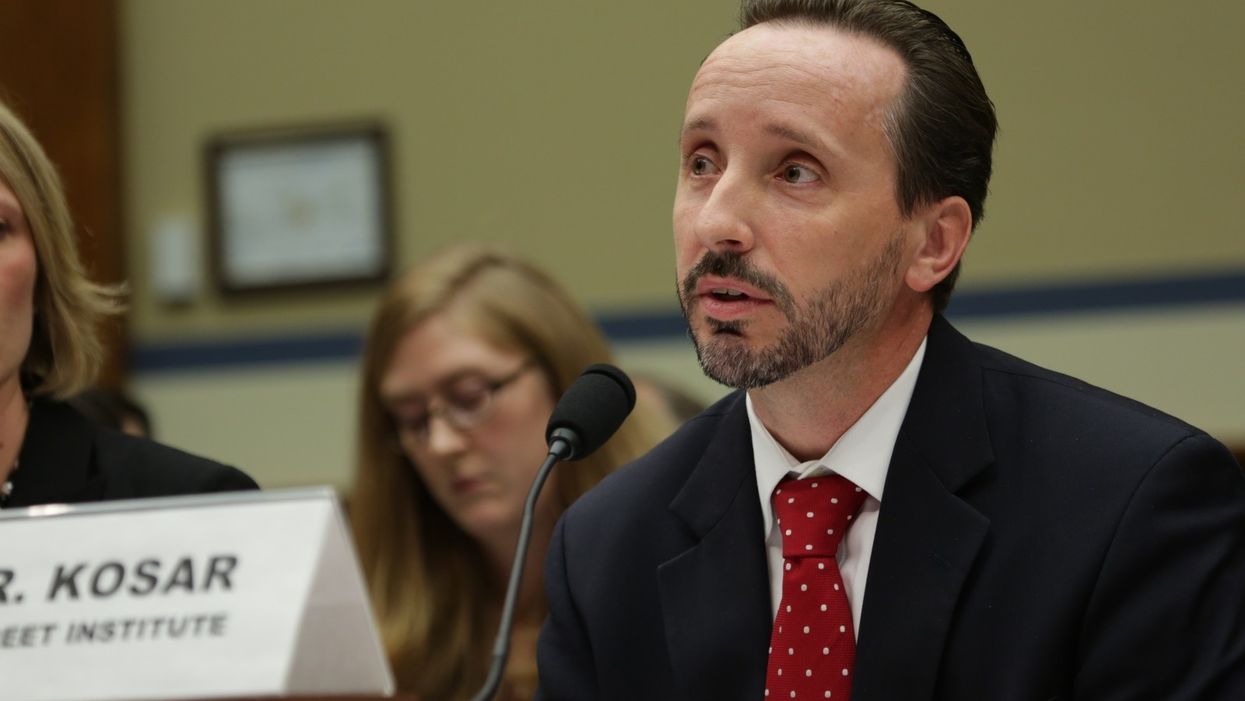Kevin Kosar is vice president of policy at R Street Institute and also cofounder of the nonpartisan Legislative Branch Capacity Working Group, which aims to strengthen Congress. He was previously a senior official at the Congressional Research Service, where he served as an analyst and research manager. His answers have been lightly edited for clarity and length.
What's the tweet-length description of your organization?
R Street is a nonprofit, nonpartisan, public policy research organization. Our mission is to engage in policy research and outreach to promote free markets and limited, effective government.
Describe your very first civic engagement.
Voting in the 1988 presidential primaries. I was 18, registered as a Democrat, as my mother would not have it any other way. I pulled the lever for Al Gore, who was a conservative Democrat back in those days. I am an independent these days, although I am effectively disenfranchised: I live in Washington, which has no congressional representation, and which locally is dominated by liberal and ultra-liberal Democrats.
What was your biggest professional triumph?
That is hard to say. I'm delighted to have a new book coming out next year with New America's Lee Drutman and James Madison University's Tim LaPira: "Congress Overwhelmed: The Decline in Congressional Capacity and the Prospects for Reform," published by the University of Chicago Press. I also am really proud of the nonpartisan legislative branch reform movement I have helped build. If we are lucky, we might just upgrade Congress to meet the demands of the 21st century.
And your most disappointing setback?
To date, I have not been able to get Congress to improve its budgeting. Our country is racking up shocking deficits and is doing nothing to deal with looming entitlement and pension crises. We could end up like Greece, yet Capitol Hill will not come together to act. The math is what it is, and I am really worried we are headed toward a financial cataclysm.
How does your identity influence the way you go about your work?
I don't think I am the smartest person in the room — nor have I ever. So when it comes to trying to improve policy, I listen to a range of ideas and ask a lot of questions. I guess that also speaks to my congenital curiosity. I enjoy learning, I really do, and like working with others who enjoy learning.
What's the best advice you've ever been given?
Don't assume good reasons are persuasive. Humans are complicated creatures, and it often takes more than facts and figures to get them to see things differently. For folks looking to reform government or politics, that means one needs to be patient and spend a great deal of time building authentic relationships.
Create a new flavor for Ben & Jerry's.
Bourbon vanilla crunch — because it would be delicious.
West Wing or Veep?
With four kids and two puppies, I've not much time for television. And when I do have time, I tune into football games. The Pittsburgh Steelers and Ohio State Buckeyes are my teams. Also films and oddball series like "The Good Place" and "Parks and Recreation."
What's the last thing you do on your phone at night?
Often I shake my head in dismay at the toxicity on Twitter. Inevitably, I double-check my schedule for the coming day to learn: Where will I be? What should I wear? When will I next get to go fishing?
What is your deepest, darkest secret?
Many years ago, I helped throw a vodka festival in Grand Central Station in New York City. A couple hundred folks attended, and it was a crazy night. Penthouse Pets showed up, as did firemen and Wall Street sorts. The event raised about $15,000 for 9/11 first responders. But that is just the tip of my drinky iceberg. I have written books on whiskey and moonshine and have blogged about alcohol since 1998. None of which one would expect from a person trained as a political scientist who spends his days trying to make Congress great again.




















